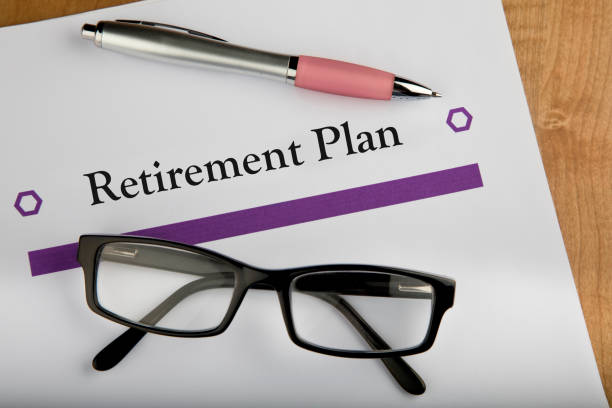Financial Planning for Retirement: Understanding the Funds Needed for a Secure Retirement
Introduction:
Preparing for retirement is an essential aspect of financial planning. One of the most common questions individuals ask is, “How much money do I need to retire comfortably?” The answer depends on various factors, such as your lifestyle, anticipated expenses, healthcare needs, and desired retirement age. In this article, we will explore the key considerations and strategies for estimating the funds needed to retire and ensure a financially secure future.
1. Determine Your Retirement Lifestyle:
The first step in estimating retirement funds is to envision your desired retirement lifestyle. Consider factors such as where you want to live, your travel plans, hobbies, and any additional expenses unique to your retirement goals. This will help you establish a baseline for your retirement budget.
2. Assess Your Current Expenses:
Evaluate your current expenses to understand how they may change during retirement. Some expenses may decrease, such as commuting costs, work-related expenses, and saving for retirement. However, other expenses, such as healthcare, leisure activities, and travel, may increase. Analyze your spending patterns to estimate how much you may need to cover essential and discretionary expenses during retirement.
3. Calculate Your Retirement Income:
Determining your retirement income is crucial to understanding how much money you will need. Consider the following income sources:
– Social Security: Estimate your future Social Security benefits by referring to the Social Security Administration’s statements or online calculators.
– Pension Plans: If you have a pension plan, determine the expected income from it.
– Personal Savings and Investments: Assess your retirement savings, including Individual Retirement Accounts (IRAs), 401(k) accounts, and other investment accounts.
– Other Income Sources: Consider any other potential income streams, such as rental income or part-time work during retirement.
4. Estimating Retirement Expenses:
To estimate retirement expenses accurately, consider the following aspects:
– Basic Living Expenses: Include costs for housing, utilities, food, transportation, insurance premiums, and healthcare expenses.
– Healthcare Costs: Understand the potential expenses for health insurance premiums, Medicare coverage, long-term care insurance, and out-of-pocket medical costs.
– Inflation: Account for inflation when projecting your future expenses. Inflation erodes purchasing power over time, and it’s essential to factor it into your calculations.
– Discretionary Expenses: Consider expenses for travel, hobbies, entertainment, dining out, and other discretionary activities you plan to engage in during retirement.
5. Calculate the Retirement Gap:
Calculate the difference between your retirement income and estimated expenses. If your income exceeds your expenses, you may be on track for a comfortable retirement. However, if there is a shortfall, you need to identify strategies to bridge the gap.








In determining the exact amount to have before retiring simply depends on one’s monthly income, furthermore, one’s expenditure really matters a lot( the more one spends, d less one saves).
For how long can be saving in order to gather some money for retire
This is a really relevant post because many grown ups mostly close to their 50s do not know what business or what do do when they retire not to even talk about the money needed to retire.
This post has made insights on those processes and it has made it easy for the to be able to figure it out themselves.
A need at least more 15 billion dollars for me to retire and two cars and Houses like 10 or more that is my ambitious
This is a good article but in my country it’s not easy to adjust plan because to feed family nowadays is very difficult.
Although in this article all the plan set here is good and when we put mind it will really work out
How can all this plans be successful, when you are a business person and at the point of retiring your warehouse got burnt, nothing was left for you to start with or even survive with? What can this individual do in this case?
Planning for retirement is very important for future events, unexpected occurrences and planned events, it helps to plan ones life and future activities. Most families can use it to train children or prepare for their future, it requires proper growth and development of family.
This is good post about retirement though as human when start a work you should know that one day you will surely retire to one have to save a lot of money,so that after retirement he/she can you the to set up business.i love the post great work.
I would like to appreciate for this article because this is really cool and helpful article ever.. It helps to your family conditions at the moment of u retire.. Gave informed about the make money.like expenses, family factors, source of income.. Etc..
Everybody must read this article thank you
I have really learnt steps to take to ensure a smooth retirement. As I am still in my twenties, I’m sure that armed with this knowledge and more that I would definitely do research on, I would make amazing financial decisions to ensure I live out my golden years in comfort
Retirement plans provide individuals with a structured and tax-advantaged way to save for their future, ensuring financial security and independence during retirement years.
Thus, this is an essential article for a retirement plan.
This is so amazing and interesting. I am looking forward to seeing what i can do with this post. It was really helpful. I will still like to know more about the whole thing. Because life after retirement is not really and usually easy. If there is anyway we can relate, I will really be interested.
In my opinion, planning for retirement is an important step towards financial security. The amount needed to retire varies for each person, depending on factors such as lifestyle, expected expenses, and retirement goals. It’s advisable to consult with a financial advisor who can help assess your unique situation and create a personalized retirement plan. Remember, saving early and consistently can greatly contribute to a comfortable retirement.
Firstly,thank you for the info but with the information given out here about the money needed does this also involve when you still have other people in your household or just for yourself,cause I thinking retiring based on one expense excluding family stuffs is very much easy,but your info here,I think it involve just personal lifestyle,and not related to a man who has a family.
It’s actually a great privilege to be here, first and foremost i would like to comment on the effort of this reputable organisation for their tireless effort to ensure things went on accordingly..
Sincerely all your task always gave sense of new ideology.
Thanks
Retirement plans provide individuals with a structured and tax-advantaged way to save for their future, ensuring financial security and independence during retirement years.
Thus, an essential article for a retirement plan.
Yest it involves careful evaluation and the lifestyle that each individual lives to be able to plan a retirement savings. And because it involves unpredictable expenses. I still think the best retirement plan should involve investment that will bring in monthly or yearly returns.
Is good to Monitor your investments, reassess your expenses, and make necessary changes to ensure you stay on track to meet
I love this